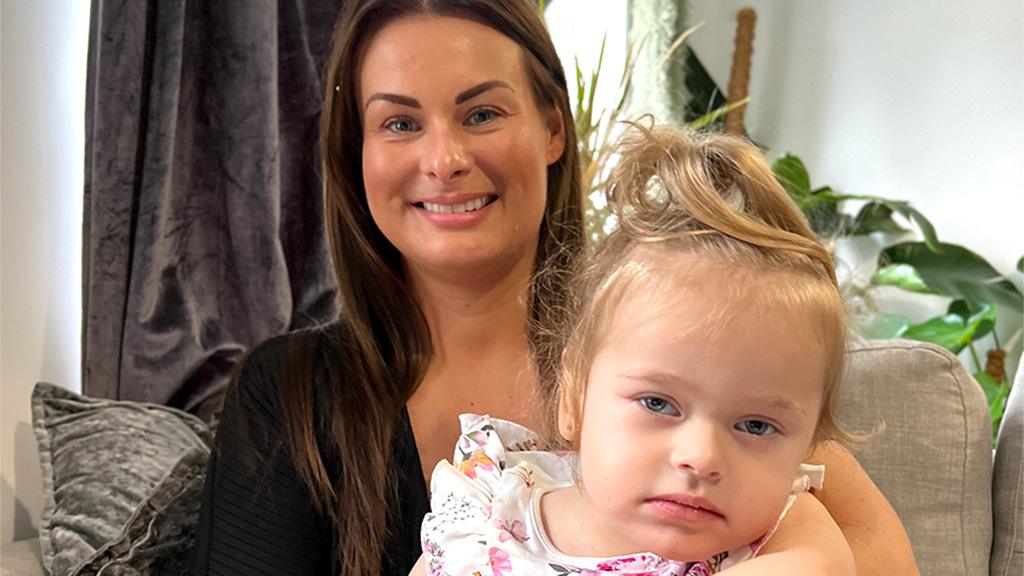'I used to think cannabis was terrible - but no more'
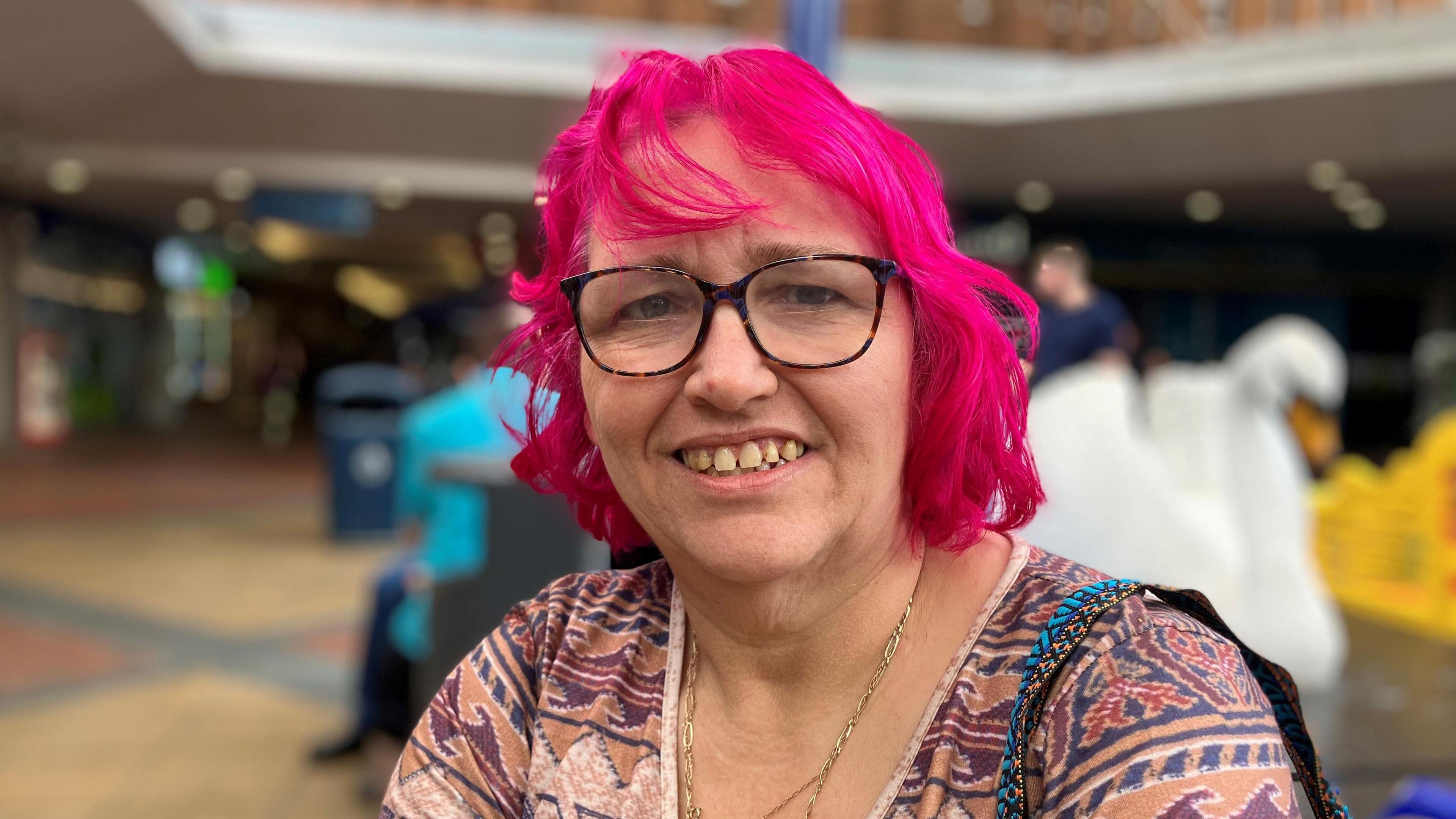
Barbara Northall, 53, has been using medical cannabis as pain relief for fibromyalgia
- Published
Patients using medical cannabis in the West Midlands are calling on the new government to make the drug more widely available to those seeking treatment.
Since 2018, medicines derived from the drug have been legal, though most remain unlicensed and not routinely available on the NHS.
Experts say the vast majority of prescriptions are currently obtained through private clinics.
"I used to think cannabis was terrible, illegal... my view's definitely changed," said Barbara Northall, 53 and from Stourport in Worcestershire, who has been using medical cannabis for more than a year.
The holistic therapist uses it as pain relief for fibromylgia, a condition that causes pain all over her body.
She told the BBC the medication had removed her need for a mobility scooter.
"It's about being able to get up, get dressed and move around," she explained.
"Long-term it’s helped me to come off my opioids medication... it's a shame you can't get it off the NHS doctor."
The Department for Health and Social Care said licensed medicines were routinely funded where there was "clear evidence of their quality, safety and effectiveness".
It would not comment on whether the new Labour government had any plans to widen access to medical cannabis.
GPs cannot currently prescribe products independently, but can do so under direction from a specialist doctor.
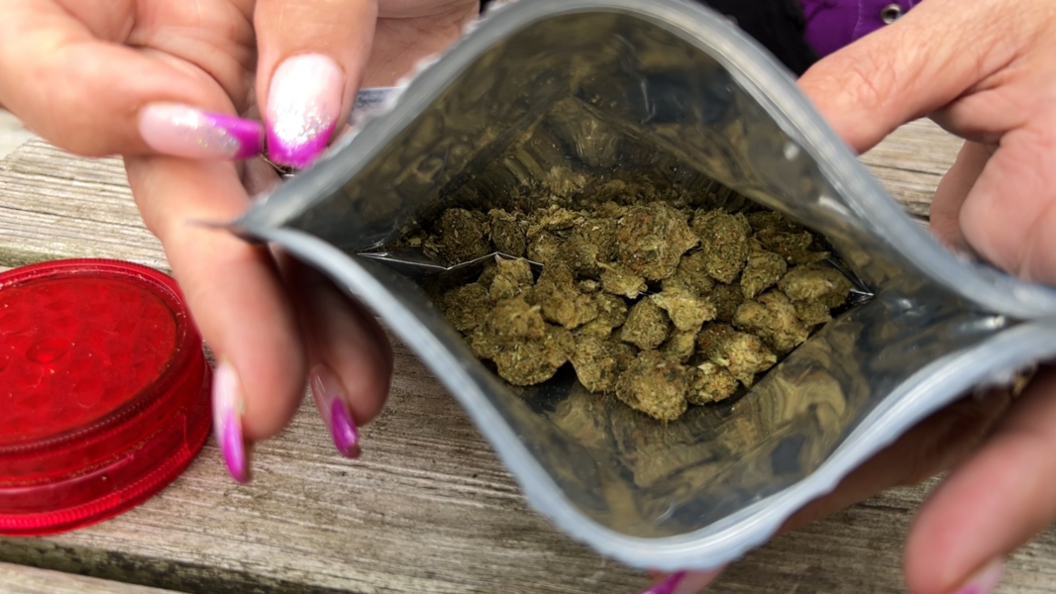
Barbara's medical cannabis prescription comes both as a dried flower she vapes, as well as drops she takes under her tongue twice a day
Ms Northall is one of an estimated 20,000 adults who are now prescribed medical cannabis privately in the UK, according to the UK Medical Cannabis registry, a database run by private clinic Curaleaf.
Its research director, Dr Simon Erridge, said of eligibility: "You need to have a diagnosed medical condition, and to have exhausted conventional first-line therapies."
He said he believed legalisation had been an important step towards giving "regulated, medical care" to an estimated 1.8m people already self-treating their conditions with illicit cannabis.
Legalised in November 2018, most medical cannabis products remain unlicensed.
This means they have not undergone certain clinical trials, or been deemed cost-effective by the National Institute for Health and Care Excellence (Nice), the organisation which evaluates drugs.
"The evidence right now is just not robust enough to convince [Nice] that the NHS should be spending its money buying those drugs and treating patients," said Dr Will Lawn, a lecturer at Kings College London who has studied the impact of cannabis on teenagers.
Removing the stigma
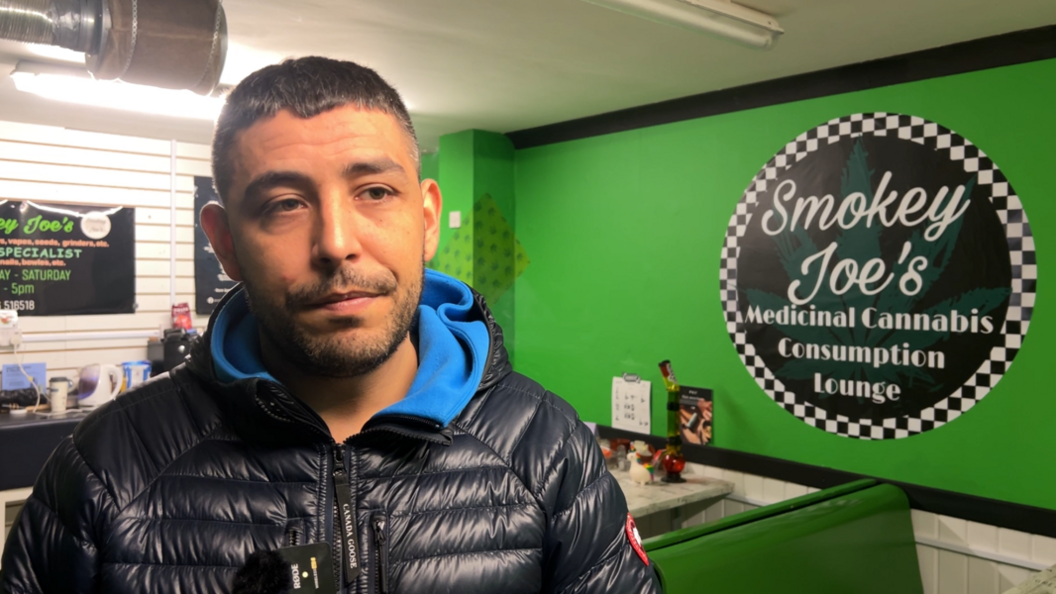
Joe Amiche, owner of Smokey Joe's, said he had set up one of England's first consumption lounges
As the number of patients taking medical cannabis grows, so too does its visibility.
At a shopping centre in Kidderminster, vape store Smokey Joe's has billed itself as one of England's first legal consumption lounges for medical cannabis.
It is not an inaccurate description. Prescriptions are not for sale there, but under law, patients may consume medicinal cannabis on site as long as they can show a licence proving it has been prescribed to them and they are eligible to consume it.
Owner Joe Amiche - Barbara Northall's son - explained how the store offered equipment to vaporise prescriptions.
"We give people a place where they can come down, meet other members that are suffering with aches, pains, problems," he said.
"It’s just getting more visible because people are taking that stigma away from it."
The shop has not been without controversy.
In April, following community concerns, it was raided by West Mercia Police. Mr Amiche was arrested on suspicion of possession of illicit cannabis with intent to supply.
Almost five months on, police said recovered material was still being forensically examined.
Mr Amiche insisted the force was not aware of the law around medical cannabis.
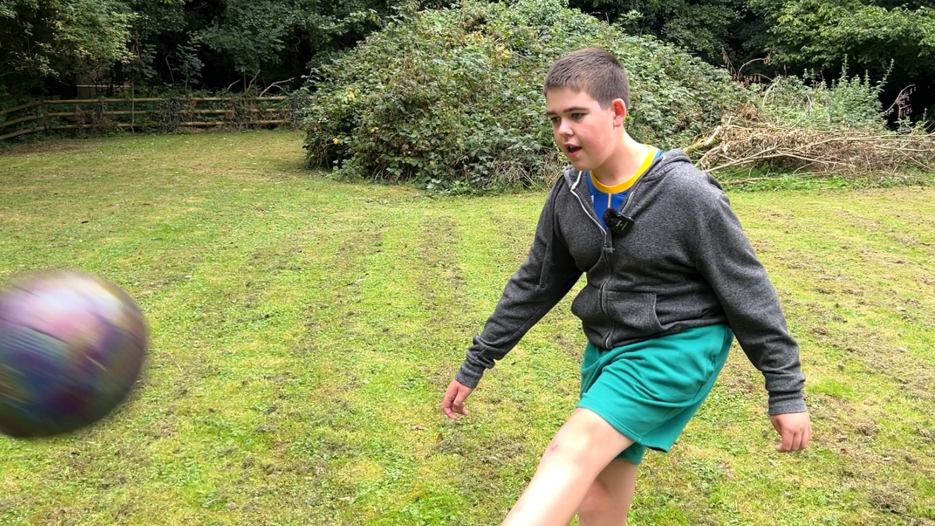
In 2018, Alfie, who is now 12, became the first UK patient to be given a long-term licence for medical cannabis
The mother of 12-year-old Alfie Dingley, the UK's first NHS patient to be granted a licence for medical cannabis, has warned that children and adults are being failed by the current system.
He is living proof cannabis can be an effective medicine.
From eight months old, a rare form of epilepsy meant he suffered from hundreds of severe seizures a week.
But until 2018 it was illegal in the UK for his family to use cannabis oil to treat him.
"He was in hospital all the time... and it’s gone from that to him [post-use] being seizure-free for [more than] four years," said his mother Hannah Deacon.
"He’s saved the NHS nearly £1m in the last four years by not going to hospital," she stated.
'Morally unacceptable'
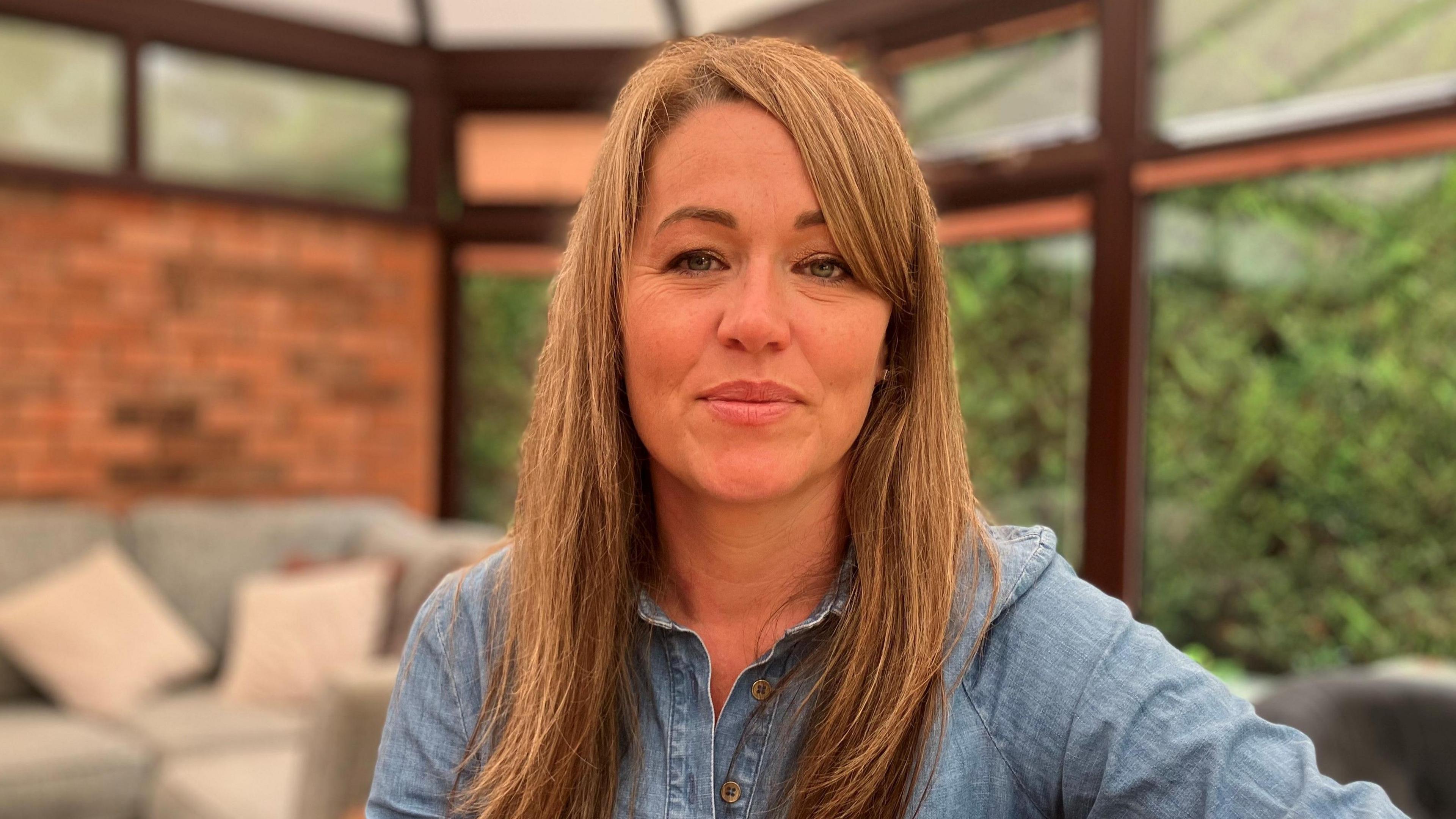
Alfie's mother Hannah said it was "morally unacceptable" families were having to pay thousands of pounds for private prescriptions
Now a campaigner and co-founder of the Medcan Family Foundation, Ms Deacon from Kenilworth in Warwickshire told the BBC she believed other seriously-ill children were being denied access to medical cannabis by the health service.
"Even when doctors do want to prescribe for children, they are dissuaded from it," she said.
"I think it’s very sad… what we've seen is an emerging private industry that serves adults... but the cost for children is huge, it’s up to £2,000 a month.
"We’ve got vulnerable families having to fundraise… for a drug that is legal to prescribe on the NHS.
"I think that’s morally unacceptable."
Follow BBC West Midlands on Facebook, external, X, external and Instagram, external. Send your story ideas to: newsonline.westmidlands@bbc.co.uk, external
Related topics
- Published15 November 2023
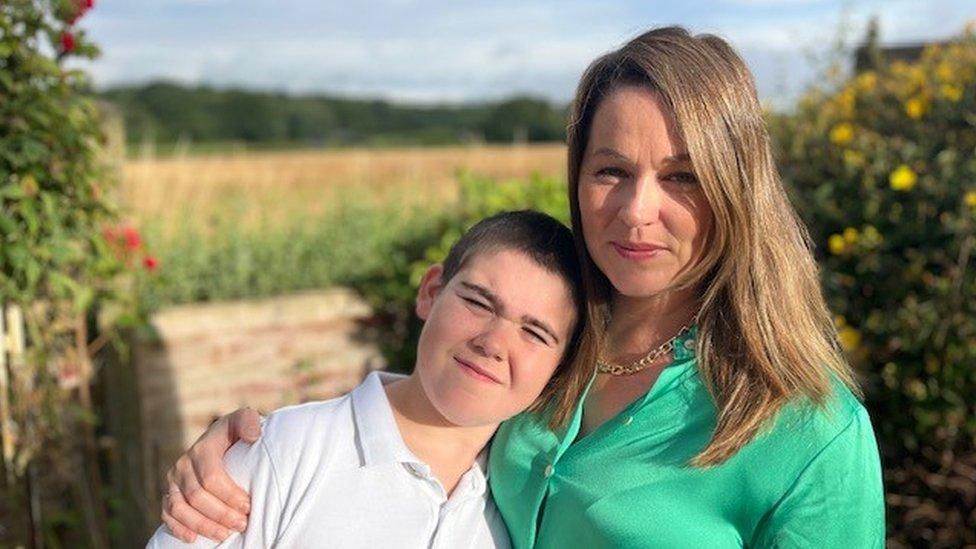
- Published13 September 2023
